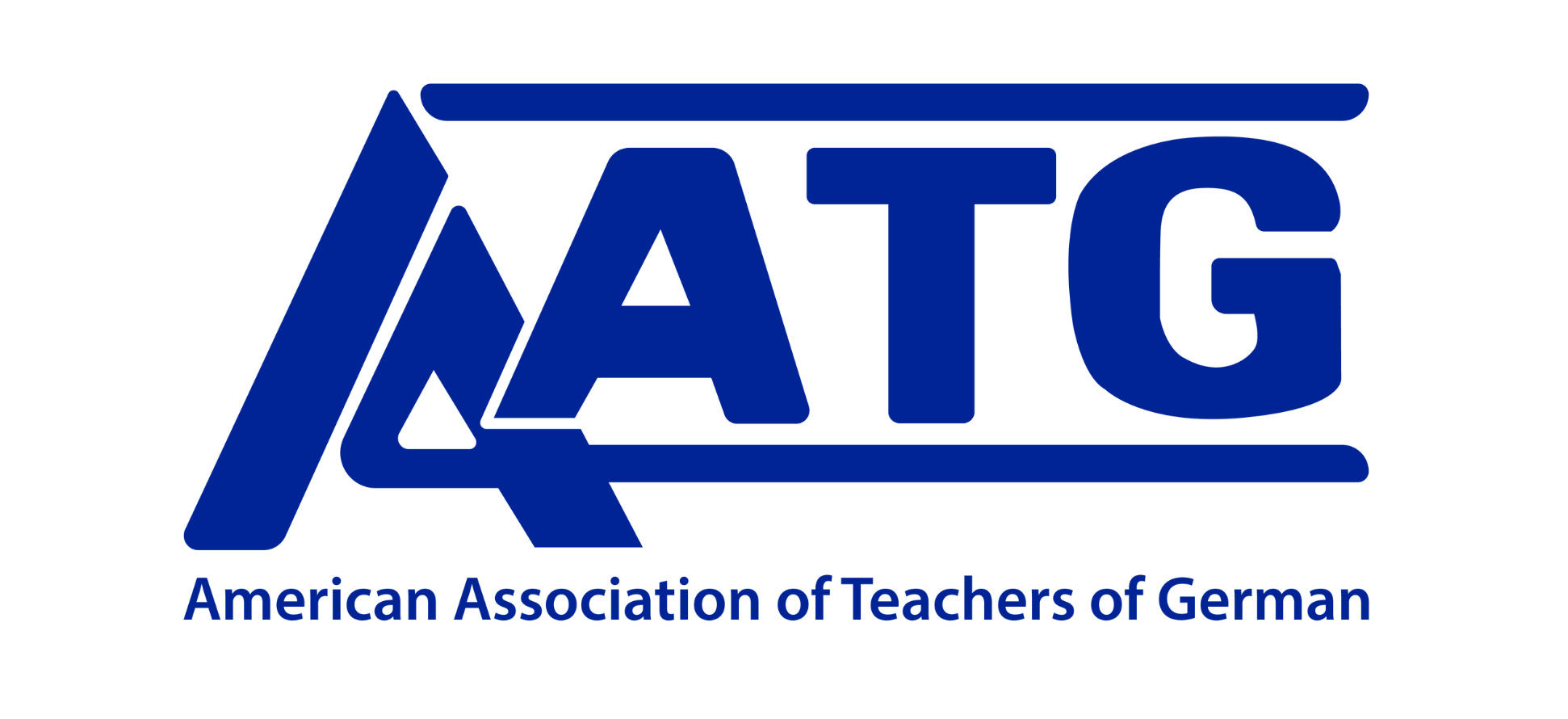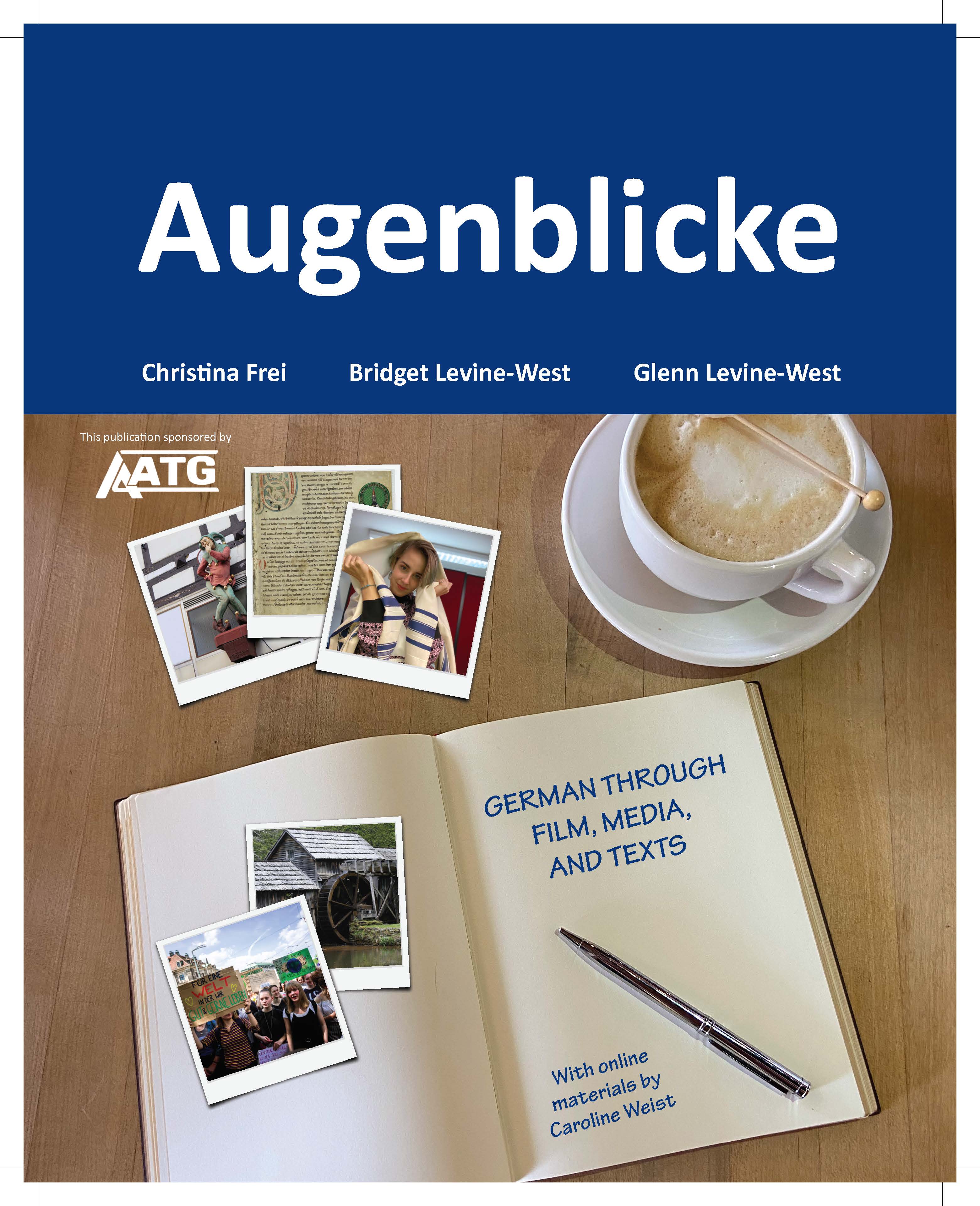Augenblicke
German through Film, Media, and Texts
Teaching with Augenblicke has absolutely transformed my expectations for beginner and intermediate language learners. You know a book is good when it allows your intermediate students to give thoughtful, critical, and culturally-informed answers to test questions like “Should dancing still be prohibited on Good Friday in Germany in 2020?” or “If you were a politician in Berlin today, would you advocate for restoring an East German government building, or for tearing it down and reconstructing a historical castle in its place?” Because Augenblicke has a unit for students interested in virtually every area of study – history, politics, arts and architecture, literature, STEM, sociology – it encourages them to make connections between German Studies and their other personal and academic interests and has served as a great recruiting tool for our program.
—Caroline Weist, Assistant Professor of German Studies, University of Richmond
Augenblicke is a wonderful book to use for beginning German at the university-level. At BYU, we’ve found that the curriculum is student- and teacher-friendly. The instructor’s manual clearly explains the purposes of the activities and assignments, which is especially important for new student instructors and professors new to teaching beginning German in this manner. Augenblicke has been created within a context of the W-RSLL, ACTFL Proficiency Guidelines, and NCSSFL-ACTFL Can-Do Statements, which makes assessing student proficiency and providing student feedback straightforward.
The aspect of Augenblicke which impresses me most is its incredibly thoughtful scaffolding. I am now teaching the third semester of the four-semester curriculum, and I am so impressed with the progress which my students have made and continue to make with regard to understanding and analyzing authentic materials, producing creative and individual presentations, essays and projects, and integrating grammatical structures into their work. I believe that they can make this progress, seemingly effortlessly (!), owing to the fact that they have been taught how to engage with authentic materials, and how to produce meaningful material, right from the start.
The genre-based approach of Augenblicke appeals to both teachers and learners, as it allows us to engage with authentic materials such as film, television series, poetry and even statistics. The textbook also offers students learning strategies that aid in the engagement and comprehension of these materials. Moreover, the nightly homework assignments on Canvas are an excellent complement to the in-class activities.
I have been teaching with Augenblicke at Northern Michigan University since 2016 and am pleased to report that Augenblicke is the first introductory textbook that I haven’t actively fought against! This is largely due to the structuring of activities, which feels natural to instructor and learner alike. Many lessons begin with an acknowledgement of one’s expectations and empower adult learners to share what they already know about a genre. Next, one encounters “authentic” materials in a variety of media, thus allowing learners to interpret textual and audio-visual materials. This is often followed by a time for reflection in which students make hypotheses about the new lexico-grammatical features they saw in the material. This kind of guided reflection allows students to infer what something might mean before encountering explicit grammar explanations. Therefore, Augenblicke’s presentation of grammar in context allows adult learners the best of both worlds: an immersion experience with the support of explicit instruction!
Augenblicke has been a great resource for faculty and students of the University of Wisconsin-Milwaukee German Program. From the very start, Augenblicke’s activities and assignments are designed to emphasize the active, rather than passive role students have in shaping learning process. Throughout each chapter or Modul, students critically reflect on cultural and linguistic similarities and differences, their own cultural values, histories, and identities, and then apply this knowledge to produce unique, multi-media presentations. For us, a major advantage of Augenblicke is that it supports and fosters an active community of learners who learn from each other as much as anything else.
About the Authors
 |
 |
||
|
Bridget Levine-West (Swanson) is an Assistant Professor of German and Film and Television Studies at the University of Vermont, where she also serves as the German language program director. Her current research focuses on the intersection between contemporary film culture, national cinemas, and media literacy educational incentives. In addition, she regularly publishes on second-language teaching, curricular design, and language program direction. Contact: Bridget.levine-west@uvm.edu |
Glenn Levine-West is a Professor Emeritus of German at the University of California, Irvine and a Lecturer of German at the University of Vermont. He has published widely in applied linguistics and language pedagogy, including on ecological approaches to language teaching and learning, the roles of the first language in second-language learning and teaching, language use and socialization during study abroad, language learning of migrants in Germany, and issues of language program direction.
Contact: Glenn.Levine-West@uvm.edu |
||
|
|
|
||
|
Christina Frei is Executive Director of Language Instruction for the School of Arts & Sciences at the University of Pennsylvania. In addition, she chairs the Penn Language Center, home of many less commonly taught languages. As Adjunct Associate Professor of Education she often is a member of dissertations completed in Educational Linguistics at the Graduate School of Education. Housed in German Studies, her research focuses on the role of generative AI for language learning and teaching, collaborative teaching and learning, and includes publications on curriculum design. Contact: Cefrei@sas.upenn.edu |
Caroline Weist is an Associate Professor of German Studies at the University of Richmond, where she is also Coordinator of the German Studies Program. Informed by her past experience as managing director of a German-American theater company, Weist’s research and teaching explore alternative forms of embodied engagement both inside and outside the classroom. She has presented and published on the role of embodiment in group identity, on gender, sexuality, and disability in performance, and on creative appropriation and democratic pedagogy in the language classroom. As a collaborator on Augenblicke, she is especially interested in the way that work done in the classroom and work done at home can intertwine to shape students’ learning and instructors’ practices. |



